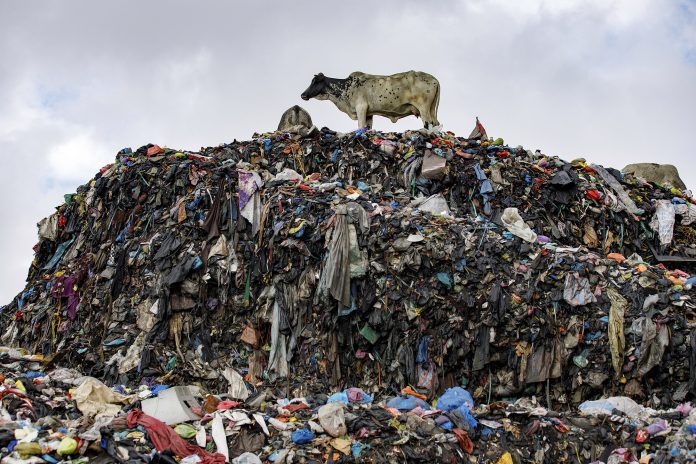(AP) — In a sprawling secondhand clothing market, with fast fashion items, in Ghana’s capital, early morning shoppers jostle as they search through piles of garments, eager to pluck a bargain or a designer find from the stalls selling used and low-quality apparel imported from the West.
At the other end of the street, an upcycled fashion and thrifting festival unfolds with glamour and glitz. Models parade along a makeshift runway in outfits that designers created out of discarded materials from the Kantamanto market, ranging from floral blouses and denim jeans to leather bags, caps and socks.
The festival is called Obroni Wawu October, using a phrase that in the local Akan language means “dead white man’s clothes.” Organizers see the event as a small way to disrupt a destructive cycle that has made Western overconsumption into an environmental problem in Africa, where some of the worn-out clothes end up in waterways and garbage dumps.
Instead of allowing (textile waste) to choke our gutters or beaches or landfills, I decided to use it to create something … for us to use again,” said Richard Asante Palmer, one of the designers at the annual festival organized by the Or Foundation, a nonprofit that works at the intersection of environmental justice and fashion development.
Ghana is one of Africa’s leading importers of used clothing. It also ships some of what it gets from the United Kingdom, Canada, China and elsewhere to other West African nations, the United States and the U.K., according to the Ghana Used Clothing Dealers Association.
Some of the imported clothes arrive in such poor shape, however, that vendors dispose of them to make room for the next shipments. On average, 40% of the millions of garments exported weekly to Ghana end up as waste, according to Neesha-Ann Longdon, the business manager for the Or Foundation’s executive director.
The clothing dealers association, in a report published earlier this year on the socioeconomic and environmental impact of the nation’s secondhand clothing trade said only 5% of the items that reach Ghana in bulk are immediately thrown out because they cannot be sold or reused.








